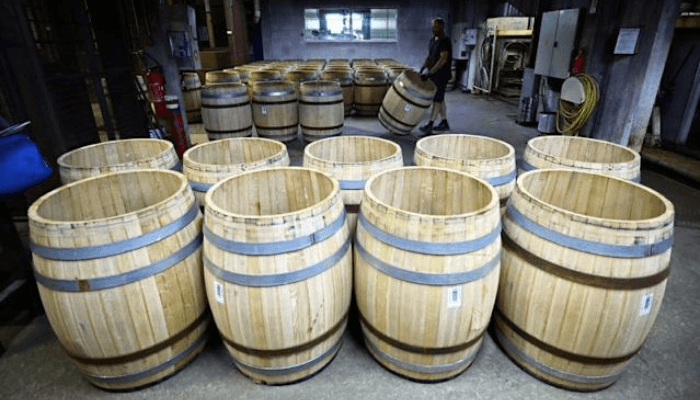Nigeria’s search for new agribusiness frontiers beyond grains and oilseeds may find an unlikely candidate in wine grapes.
Industry expert Victor Ikem, founder of LWS Wine Academy (Lagos Wine School), says parts of the country have the right soil and climate to begin cultivating grapes for wine production that could reduce imports and open a new source of non-oil export earnings.
Speaking on Smooth FM’s Business Hub program, Ikem said regions across Kaduna, Plateau, and Benue States show strong potential for viticulture if backed by targeted investment and research.
“Based on recent findings, some regions in Nigeria have the potential to produce wine grapes,” he said. “Wine production involves a lot of investment and time. At the moment, almost all the wines consumed in Nigeria are imported, but we have the opportunity and resources to grow our own grapes. We have seemingly the right environment to do that on a large scale.”
Read also: How firm plans to disrupt Nigeria’s $420m wine industry
Ikem estimates that parts of the North Central and North West have as much as an 85 percent chance of successfully cultivating wine grapes, depending on varietal selection and soil management.
“It’s not just about planting grapes,” he explained. “We need to identify the right varieties that can thrive in our climate, likely red grape varieties such as Zinfandel, Shiraz, and Merlot. Nigeria has the soil and temperature to support grape cultivation, but we need research and collaboration with globally acclaimed winemakers who can share their technical knowledge and experience.”
Nigeria currently imports nearly all its wines from France, Italy, Spain, South Africa, Germany, and the United States, spending millions of dollars annually in foreign exchange. Ikem noted that while South Africa remains the continent’s dominant producer, other African countries are gradually investing in local winemaking.
“The wine business is capital-intensive,” he said. “But Nigeria’s thriving consumer market makes it a profitable venture if properly structured.”
He insists that developing a domestic wine industry could strengthen value chains linking agriculture, manufacturing, and hospitality, while reducing dependence on volatile global imports. Wine production could also boost rural employment and stimulate tourism in areas suited for grape cultivation.
Nigeria’s wine market is valued between $400 million and $420 million annually, according to industry estimates referenced by Ikem. Consumption is driven largely by younger consumers and urban professionals shifting from beer to wine as disposable incomes rise.
“Young Nigerians generally have a sweet palate,” he said. “Over 70 percent of respondents in a recent survey said they prefer sweet wines with higher alcohol content. This reflects our culture and the youthful demographic that’s transitioning from beer to wine. Sweet wines are easy to drink, pair well with local dishes, and fit our lifestyle of convenience and celebration.”
While sweet wines dominate sales, Ikem noted that dry and sour wines are gradually finding loyal consumers among more mature drinkers. “Every style of wine appeals to a specific market segment,” he said
Read also: Nigeria imports $7.8m of U.S wines in 2024
Through LWS Wine Academy, Nigeria’s first dedicated wine education institution, Ikem is advocating a deeper understanding of wine as both a product and an industry.
“At LWS Wine Academy, our goal is to develop Nigeria’s wine industry through education, exposure, and experience,” he said. “We want to create an ecosystem where Nigerians don’t just consume wine; they understand it, appreciate it, and build sustainable businesses around it.”
Experts say Nigeria’s large consumer base and improving agricultural research offer a foundation for future local production if supported by coherent policy. Developing vineyards, processing facilities, and cold-chain infrastructure, they argue, would place wine alongside cocoa, cashew, and palm oil as part of Nigeria’s broader agro-industrial diversification.
For now, the ambition remains largely untapped. But as consumption rises and agribusiness investors seek new opportunities, Nigeria’s next high-value crop may not be wheat or rice, but it could be wine grapes.

